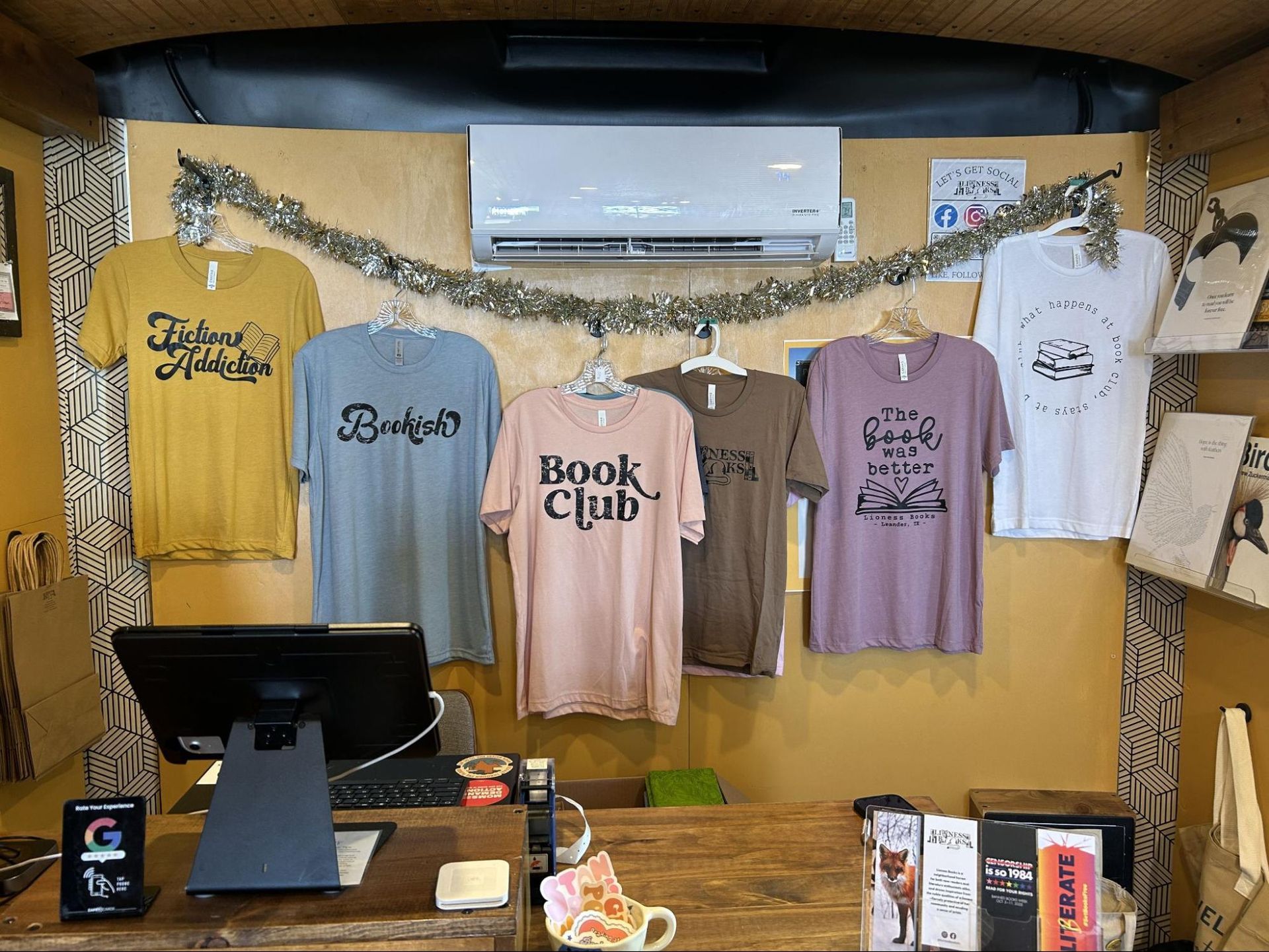Lioness Books is highlighting the freedom to read and the dangers of censorship this August with Banned Books Month. Anne Russey, co-founder of the Texas Freedom to Read Project, talks with us about advocating against book bans and censorship, and the biggest roadblocks they face in the process. Russey also shares the inspiration for their nonprofit organization as well as their mission and values.
We are running a social campaign all month long—DM us a photo of you with your favorite banned book to be featured on our socials (@lionessbookstx)! Check out our curated booklists featuring a variety of banned books on our
Bookshop and
Libro sites too.
AS: Introduce yourself and tell us about your background!
AR: “Texas Freedom to Read Project is a parent-founded, parent-led 501c3 nonprofit organization fighting book bans and censorship in our state. Our co-founders are Laney Hawes (Fort Worth), Frank Strong (Austin), and Anne Russey (Katy). We are parents of Texas public school students. We juggle the full-time advocacy work of Texas Freedom to Read Project in whatever margins we manage to carve out of our lives. We are two moms and a dad who had enough people censoring and removing books from our kids’ schools under the guise of “parents rights” and “protecting kids.” We are parents, too, and we believe the majority of parents love and trust our public school libraries, librarians, and teachers as much as we do. We’re working to let fellow Texans- especially parents- know that the freedom to read is under attack in Texas, and how they can join us in fighting back.”
We stayed in touch with each other, but pretty much fought on our own in our respective communities, each anticipating (and hoping) a parent-led group—like Florida Freedom to Read Project—would pop up in Texas. We eventually looked at each other and realized we were it. If we wanted a parent group, it was up to us to make it happen. No one was coming to save us.
With the blessing of our mentors/big sisters/cheerleaders at Florida Freedom to Read Project, and support from friends we had made at organizations
EveryLibrary and
PEN America, Texas Freedom to Read Project launched in November 2023.”
AS: Introduce us to your organization! What is the Texas Freedom to Read Project all about?
AR: “Texas Freedom to Read Project supports, connects, and mobilizes fellow parents, and everyday Texans, to combat book bans and censorship in Texas. We believe the first amendment rights of our children—and all Texans—are on the line, and worth fighting for.
We believe every parent has the right to guide their own child’s reading choices, but no one else has the right to make those choices for our kids (or other people’s kids)! We believe book bans harm our kids, not help them.
Practically speaking, we stay really busy. The work of the Texas Freedom to Read Project has quickly become a full-time volunteer commitment for all of us. Throughout the year, we participate in events and community forums at local bookstores, host tables at festivals and conferences, and collaborate with organizing partners on trainings, webinars, and working groups. We utilize our website and social media platforms to share stories of censorship happening in Texas, to inform the public—and sometimes the news media—about
the latest unbelievable thing we have heard (and been able to verify). We issue calls to action through our email list to fellow Texas book-lovers to let them know practical steps they can take to advocate against bad policies and laws, and for the freedom to read.
Finally, while we aren’t doing any of this for recognition—and in fact, we really wish no one had to do any of this at all—we are really proud of being nominated for and awarded the
Sam G. Whitten Intellectual Freedom Award by the Texas Library Association, for 2025.”
AS: What book bans has your team been dealing with recently?
AR: “Book banners have largely moved away from challenging individual titles. Instead we have seen an increase in political and religious groups sending long lists of books to multiple school districts at a time. Often times these emailed lists include statements that if a school district doesn’t comply with removing all of the
600+ books from their libraries (which may or may not be in the school catalog to begin with), an activist will show up at a public board meeting and read an excerpt from a book usually geared towards young adult or adult level readers (usually a scene with sexual content or profanity that sounds shocking and offensive when read out of context out loud in a public setting).
Right before school got out for summer, we learned
Nacogdoches ISD responded to one of these threatening emails from a Texas GOP committee chair, who lives outside the district, ordering the high school librarian to remove hundreds of books from school library shelves, without following their reconsideration policy. NISD parents, students, and community members packed their May school board meeting with speakers who called out the removal of the books which violated board policy and asked the trustees to intervene.
We are also watching the restriction of over
400 LGBTQ+ books from Katy ISD library shelves, which were pulled following the school board’s decision to ban books that “promote gender fluidity” in junior high and elementary libraries, and require parent opt-in for high school students.
It’s unclear the fate of those books, because the districts have not offered any public updates during the summer months. But we are watching that closely, and hoping the districts will review the books and return them to shelves before the start of the new school year.”
AS: What is the importance and value of fighting back against book bans?
AR: “While we know many librarians, students, organizations, and authors who have been doing the hard work of speaking up and advocating against book bans and censorship in Texas for years, we also believe this is a fight we have to engage in as parents. The movement to restrict and ban books is largely framed by book banners as a “parents’ rights” movement—so we need to counter that message at every turn.
The fight for “parents’ rights” and “parent choice” in Texas has never been about the rights or choices of
all parents. Parents like us who love and value our public schools, and want to protect our children’s first amendment rights to read and access books and information, have never been considered in that movement.
So we are building our own movement! We are parents who are giving everything we have to fight FOR our families’ freedom to read and we hope other parents (and book-loving Texans) will join us.”
AS: What are the biggest roadblocks your team faces in the work that you do?
AR: “We just wrapped up a busy few months advocating against some pretty terrible book ban bills in the
Texas legislature. Thanks to the efforts of a broad coalition of advocacy partners, we had some victories—like stopping a book store bounty bill (HB 1375) and a public library law that likely would have severely restricted teenagers' access to the public library, if not banned them from the library entirely (HB 3225). We also suffered some really brutal losses that will have lasting, possibly catastrophic impacts on our school libraries. We are most concerned about
SB 13—a law that essentially takes the worst and most restrictive local school library policies we have seen (like those in place in Keller ISD and Katy ISD) and makes them state law. It also gives school boards the option to appoint representatives of their choosing to “School Library Advisory Committees” that will oversee (aka micromanage) book selection, purchasing, book challenges, and removals.
Most districts previously left challenged books on shelves, accessible to students while the reconsideration process played out, but SB 13 now requires challenged books to be removed immediately. So now, when a politician or political activist sends their list of 800+ books to school districts (that often include titles like
Anne Frank’s Diary: the Graphic Adaptation,
The Handmaid’s Tale, and
The Color Purple) the challengers will expect every single title to be taken off of shelves immediately.
While school districts and school boards have long held (appropriately, we think) the right to remove books that are “pervasively vulgar” and “educationally unsuitable,” SB 13 adds new removal criteria including books deemed “indecent,” “profane,” and “inconsistent with local community values” which we think will result in a whole new wave of book challenges and bans.
So as our dear friend, Stephana Ferrel at
Florida Freedom to Read Project explains—historically there’s a pendulum that swings in public schools, and in society, that moves back and forth based on what people, politics, and culture deem “acceptable” at any given time—but the more states like Florida and Texas pass legislation that creates barriers to stop the pendulum from swinging back, the more stuck we are going to be in the place we find ourselves now. Which is very, very far to the “right” - a place where diverse and inclusive stories are perceived as “woke” and “inconsistent with community values.” A place where books about
farting snow men are considered “obscene” and stories about itty bitty pink kitty cats who want to be unicorns are considered “sexually suggestive.” A place that doesn’t believe teenagers are mature enough or capable enough to read and process books and stories that contain hard and painful themes and content that have challenged readers and helped us grow and learn for decades. A place we very much don’t want to stay.”
AS: How has your organization changed and evolved over the years?
AR: “We have realized over the past two years that book bans aren’t going away anytime soon. We’ve also seen as some districts like Cyfair ISD and Conroe ISD have censored chapters in certain text books, and Lamar Consolidated ISD turned off student access to a digital lesson on the state of Virginia (their state flag has boobs on it), that censorship takes many forms—and is not limited to library books.
We continue to try and figure out how to help people connect the dots between the anti-public education/pro-voucher policies, Christian Nationalism, and book bans. We’re also navigating an evolving and changing landscape in terms of local, state, and federal laws, executive orders, and politics that impact the work we are trying to do.
On our worst days, we worry “everywhere is Texas now” and feel like nothing we are doing is enough. And on our best days, we look at each other and the thousands of other Texans who are fighting and working every day to make our state work better for
all of us, and feel immensely grateful to be right where we are.”
AS: How can people support and join the Texas Freedom to Read Project?
AR: “There are over 1200 school districts in Texas. We are three parents. We can’t possibly know what is happening in every district, so if you see something that concerns you- let us know! We can help trouble shoot, brainstorm and strategize. We can amplify local stories on our website and our platforms. You are best suited to tell the stories about how book bans and censorship are impacting your community. We are here to help you do that!
Join our volunteer email list (https://www.txftrp.org/volunteer)! We desperately need more parents to speak up publicly with their concerns on the local and state level. We need more parent volunteers we can call on who support the freedom to read, and are willing and able to travel to Austin to testify at State Board of Education meetings, and any other legislative hearings or sessions that take place between now and the next legislative session scheduled for 2027. So please let us know when you sign up, if that’s something you’re interested in doing!”
Follow us on social media (Instagram, Facebook, Bluesky, X): @txfreedomread
Donate: https://www.txftrp.org/donate
Shop our Bonfire store: https://www.bonfire.com/store/texas-freedom-to-read-project/
Email us (info@txftrp.org) to let us know how book bans and censorship are impacting your community. We can help.












